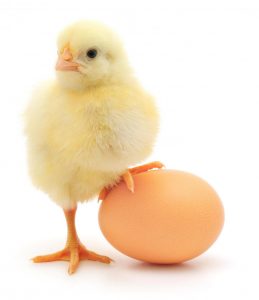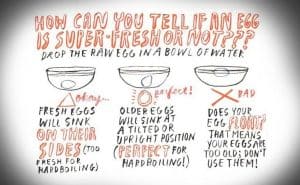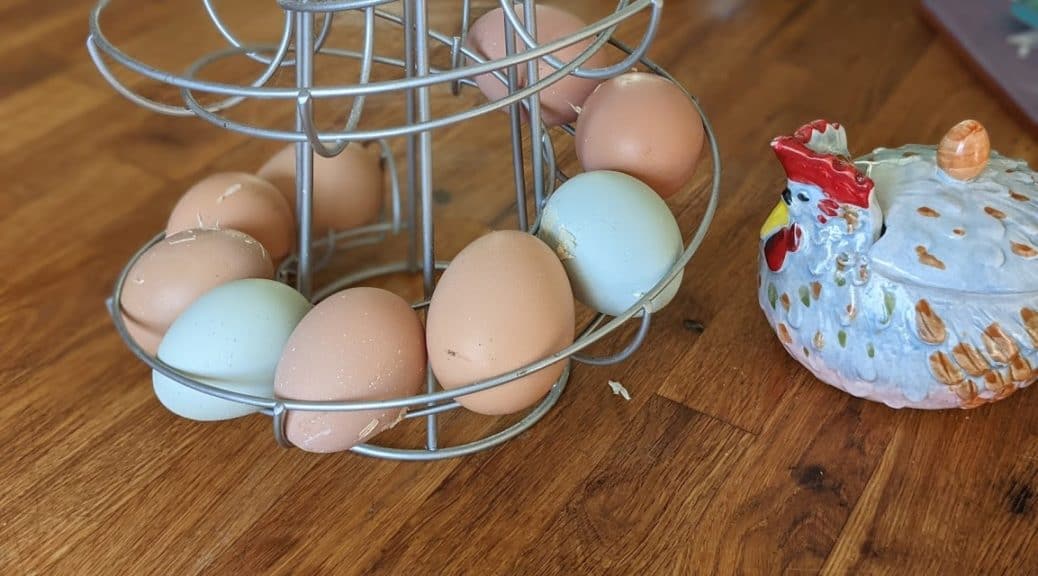Eggs
Eggs From the House of Toxins!
Our chickens have now fully ramped-up egg production, and we are sharing the surplus with friends. If we handed you some eggs, here are some helpful tips for enjoying them…
Pecker (murdered by raccoon), Princess Buttercluck (illness), and Cluck Norris (RIP), Hen Affleck (also murdered), and Hennifer (so young) Buttercluck Too, and Rachel hope you enjoy their eggs. You should find that these eggs have a lot more flavor than the eggs you get from the store, and the yolks will usually be a dark, rich orange color, reflecting the fact that these chickens eat better than most humans.
If you haven’t had eggs straight from the hen before, here are some tips…
- Don’t refrigerate the eggs (unless you washed them prematurely)
 Europeans and old timers have kept eggs at room temperature for centuries and been just fine. The key is to never wash your eggs until you are ready to use them. The whitish coating, also known as the “bloom,” protects the inner egg. The shells are porous, and until the bloom is washed off or compromised from getting wet, the inside is more or less protected. Once the bloom is washed off, you MUST refrigerate the eggs and keep them refrigerated. Kept unwashed and never refrigerated, eggs can be kept on the counter from 6 weeks to 2 and a half months, depending on the room’s temperature.
Europeans and old timers have kept eggs at room temperature for centuries and been just fine. The key is to never wash your eggs until you are ready to use them. The whitish coating, also known as the “bloom,” protects the inner egg. The shells are porous, and until the bloom is washed off or compromised from getting wet, the inside is more or less protected. Once the bloom is washed off, you MUST refrigerate the eggs and keep them refrigerated. Kept unwashed and never refrigerated, eggs can be kept on the counter from 6 weeks to 2 and a half months, depending on the room’s temperature.
- If you are concerned about the egg being safe, just get a bowl of water
 If you put an egg in water and it sinks, it is safe to eat. Don’t do this water test until you are just about to eat the egg, as you don’t want to wash off the bloom. Just fill a bowl with cold water and place your eggs in the bowl. If they sink to the bottom and lay flat on their sides, they’re very fresh. If they’re a few weeks old but still good to eat, they’ll stand on one end at the bottom of the bowl. If they float to the surface, they’re no longer fresh enough to eat. If you want to learn more, check out How to Tell if Your ‘Expired’ Eggs Are Still Good to Eat.
If you put an egg in water and it sinks, it is safe to eat. Don’t do this water test until you are just about to eat the egg, as you don’t want to wash off the bloom. Just fill a bowl with cold water and place your eggs in the bowl. If they sink to the bottom and lay flat on their sides, they’re very fresh. If they’re a few weeks old but still good to eat, they’ll stand on one end at the bottom of the bowl. If they float to the surface, they’re no longer fresh enough to eat. If you want to learn more, check out How to Tell if Your ‘Expired’ Eggs Are Still Good to Eat.
- Wash your eggs right before you use them!
Laying eggs is not always a clean or easy process so they come out in a wide spectrum of cleanliness. When you are ready to eat them, you should give them a quick wash. Do not leave eggs immersed in water. The best method is to quickly wash the eggs under running water from the faucet. Another method is to spray the eggs in washer flats or wire baskets with warm water. Sometimes we’ll use a tiny bit of dish soap if the egg is really dirty. Remember, eggshells are porous so you don’t want to use anything that will soak into the egg.
Enjoy!
I want to recognize the Off the Grid News article 7 Tips For Keeping Backyard Chicken Eggs Safe To Eat as a source for much of this information.
